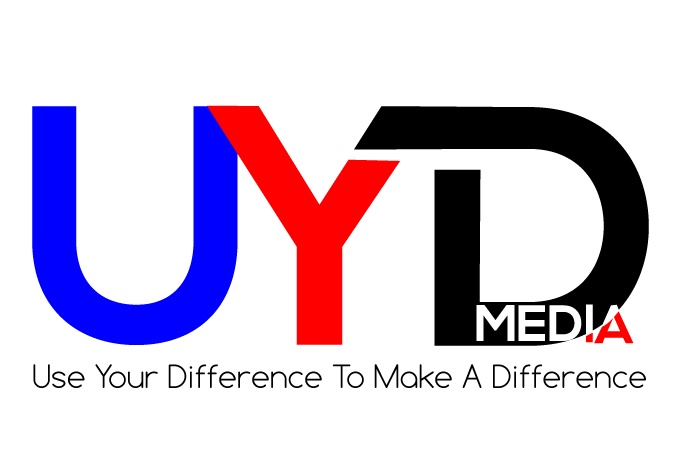“The regular non-tout Lagosian too, has to share this attitude. The body language as one moves through the street has to be one of undiluted self-assurance. Uncertainty in the face or gait attracts attention, and attention is bad. […] There are many people on these streets who roam around looking for victims. People who, through long practice, can sniff weakness wherever it is.’’
-Teju Cole, Everyday is for the Thief
On recently and finally moving back to Lagos, Nigeria, after 5 years of studying in the UK, I can only describe the process of becoming a true Lagosian as… startling, and somewhat amusing. I say true Lagosian because one does not truly experience the ‘hustle’ of Lagos as a teenager constantly away at boarding school and then away at university.
As a young adult, recently graduated with the whole of the future on the brink of happening, the world suddenly appears a lot clearer. Call it a shift in perspective or a reality check, but both ways, cold anxiety seeps as it all becomes real- its time to get independent… in Nigeria.
So, anyone who’s returned to Lagos and applied for programmes such as the Nigerian Law School (for law graduates like myself) and the compulsory National Youth Service Corps (NYSC), will know what it means to stand from queue to queue in hot ‘fry your brain’ sun, interacting with loud, dismissive ‘call back again in two weeks!’ officials. It’s most likely also dawned on them that its not a joke; Nigeria is really not for the weak.
It is one thing knowing the Lagos from the periphery and it’s another being totally immersed in the city. So having successfully navigated some of the early stages of becoming a true Lagosian, I’ll leave 7 quick tips for anyone ever planning to make the courageous move to las gidi: the city of 11.2 million larger than life personalities.
- Drive. This may sound either obvious or incredulous depending on how you look at it. But- there is a special growing effect driving in Lagos does to a person. Don’t be alarmed when you find yourself morphing from a gentle civilized citizen into someone with ‘Lagos madness’. Similar to a remixed version of a Formula One car racing experience, people will overtake and zoom past you on the road; Danfo (public buses) will stop right in front of you; and you will see a goat tied to an okada (motorbike) heading to its demise. Hawkers will try to sell you everything from a motivational book to snails, peanuts, plantains and even unsolicited windshield cleaning services in traffic. Driving in Lagos needs a certain level of guts, and this is necessary to survive in the city in general. You might as well get a crash course in Lagos madness from driving, and as they say, if you can drive in Lagos, you can drive anywhere in the world.
- Speaking of traffic, this is the thorn in the flesh of every Lagosian – no matter the sphere of society or field of work. If you need to move from point A to B, know you are likely to encounter literal standstill traffic in an atmosphere that’s a frenzy- a mixture of urgent car horning, smog, and impatience. Learn when the peak hours are, and learn all the shortcuts and back routes. And yes, learn patience.
- Fake it till you make it. No, not in the negative pretentious sense. But, as Teju Cole so vividly described, Lagosians can sniff weakness and vulnerability from a mile away. And unfortunately, they will play on this to their advantage. Never be intimidated. If you are trying to start business for example, dress like you are already running a multi-million Naira corporation. Interact with all the confidence of a CEO. Let your gait, and aura will be one of ‘undiluted self assurance’- a necessary survival skill (even if you may feel as uncertain as anything inside).
- Network, network, network. This is so important. Nigeria unfortunately operates more on a ‘man know man’ basis rather than on merit. Go places, be friendly and confident and make contacts. Discuss your interests with people and discover theirs- you may find common ground. There’s nothing like trying to get something done and ‘knowing someone that knows someone’ that can help.
- ‘Use your difference!’ Bring experiences and skills from wherever it is you’re coming from and do something. If you notice a gap you think you can fill with a business idea, do it. If you are particularly passionate about an area of society that is lacking, start a non-profit. Just take the plunge and do it. Don’t allow the pace of Lagos to discourage you. In fact, it should inspire you. Recently, I asked a friend who lives in Abuja about why he wants to move to Lagos. He said: ‘Abuja isn’t for a young man. Lagos is. In Lagos you can’t see all the people hustling around you and not be motivated to do something. Abuja is for when you’ve made it and are ready to retire.’ Perhaps this is why it’s also referred to as the City of Excellence?
- Laugh. There’s one thing I know for sure- Nigerians can turn the most morbid thing into a joke. This is not to say that this is a good thing, or that we become any less aware of the seriousness of the thing, but- I think it’s a survival skill that has developed over decades. This is why, instead of being dramatic over power failures for instance, people jokingly shout ‘up NEPA!!’ when the power comes back on and they make memes about generators and power cuts and the world just keeps spinning. Yes I believe this is part of the problem- we breeze past many issues unsolved. Yet the Nigerian ‘spirit’/playfulness teaches us never to get bogged down by hardships, but to keep going. So, when you face the inevitable daily hurdles in Lagos just stay light hearted knowing you’ll figure it out as you go along.
- Experience culture and enjoy yourself. There are lots to do and see in Lagos and it just takes stepping out (preferably with someone who knows the city well). I stumbled across an article called ‘Contrasting Lagos’ in the South African Airways Sawubona magazine, and these were some of the places highlighted as a ‘must visit’ in Lagos: the iconic Fela Kuti’s Afrika Shrine where you can catch his son Femi Kuti performing, markets such as Balogun market, galleries such as the Centre of Contemporary Art, Freedom Park, Nike Art Gallery, and one of my favourite- Bogobiri Hotel (the architecture and décor is art in itself). You can catch the monthly ‘Taruwa” open mic there too, to interact with budding Lagos poets, artists, musicians, etc.
More than anything it just helps to know that Lagos is not a place you understand (or enjoy) from the sidelines. You need to dive in. ‘[The city] assaults all of your senses. You smell, hear and see more than you ever have before. It challenges your ideas of a metropolis, of conduct and chaos, of population and productivity.’ (Sawubona, Nov 2014, p. 75). It is a combination of all these things that makes Lagosians and indeed Nigerians in general, some of the most resilient, intelligent and, according to some studies, the happiest people in the world[1]. Come visit?
[1] The Guardian, 2011 http://www.theguardian.com/global/2011/jan/04/nigerians-top-optimism-poll
About Author

Nuella is a Swaziland-born Nigerian poet, alumnus of the United World College of the Atlantic and law graduate of the University of East Anglia, UK. She has a passion for Jesus, her continent, literature, international development and all things art. Having grown up between three very culturally/ethnically diverse African countries whilst being a mix of two of them, she’s become a strong believer that creative writing is one of the most effective ways to foster inter-cultural understanding. Her poetry has hence been published in online magazines such as United Words, UBC Intercultural Alliance, The Kalahari Review and recently first appeared in print in the UEA Creative Writing Anthology 2014.
“Emmanuela Onyilofor Uses Her Difference to Make a Difference by encouraging and inspiring people to be ‘light’ in a dark world using their gifts, the Gospel and selfless love (World Light Movement).”
You can follow her on twitter @nuellaswords.




